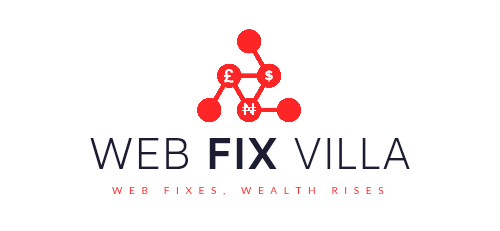
Inflation is one of the biggest financial challenges facing Nigerians today. From soaring food prices to a weakening naira, its impact is deeply felt in our daily lives. If you don’t understand how inflation works and how to shield your money from its effects, you could watch your purchasing power shrink.
This guide explains what inflation is, why it happens in Nigeria, its consequences, and how to protect your hard-earned money.
1. What Exactly is Inflation?
Inflation is the rise in the overall price level of goods and services over time, which reduces the buying power of your money.
Example:
In 2020, ₦500 might have bought you a small bag of rice.
By 2024, that same ₦500 might barely buy a cup.
This shows the naira has depreciated—you now need more money to buy the same things.
💡 Note: A moderate level of inflation is normal in every economy. The problem arises when it becomes excessive and uncontrolled.
2. Main Causes of Inflation in Nigeria
Several factors fuel inflation in Nigeria, including:
1️⃣ Currency Devaluation (Naira vs. Dollar)
- When the naira weakens against foreign currencies, imported goods become more expensive.
- Nigeria imports many essential items—fuel, food, electronics—so any drop in the naira’s value leads to price hikes.
💡 Reducing dependence on imports and boosting local production can ease this pressure.
2️⃣ High Cost of Production
- Poor electricity supply, rising fuel prices, and inadequate infrastructure make it expensive for businesses to operate.
- To stay afloat, they raise the prices of goods and services.
💡 Improved power supply and better infrastructure could lower production costs and reduce inflation.
3️⃣ Too Much Money in Circulation
- When there’s more money in the economy than goods available, prices go up due to increased demand.
- This happens when the Central Bank injects excess liquidity into the system.
💡 Monetary policies from the CBN aim to control inflation by managing the money supply.
4️⃣ Government Spending & Poor Fiscal Policies
- Excessive government borrowing or printing of money can trigger inflation.
- Unstable economic policies also hurt investor confidence and currency value.
💡 Transparent budgeting and prudent financial policies can help keep inflation under control.
3. How Inflation Affects the Average Nigerian
Inflation doesn’t just hit the economy—it impacts your wallet and lifestyle in the following ways:
1️⃣ Rising Cost of Living
- Essentials like food, transport, and housing become more expensive.
- Unfortunately, salaries often don’t increase at the same rate.
💡 Control your spending and find new income sources to cope with rising prices.
2️⃣ Declining Value of Savings
- If inflation is 20% and your savings only grow at 5%, you’re losing value.
- What ₦1 million can buy today may be worth far less in a few years.
💡 Consider investing in assets that grow faster than inflation.
3️⃣ Struggling Businesses
- High costs can force companies to raise prices or reduce their workforce.
- Small businesses are especially vulnerable.
💡 Business owners should explore affordable suppliers, adjust pricing, and cut operational costs.
4️⃣ More Poverty and Unemployment
- Inflation affects low-income earners the most.
- As businesses struggle, job losses and wage cuts become more common.
💡 Learn in-demand skills and seek multiple income streams to stay financially stable.
4. How to Protect Your Money from Inflation
You may not be able to stop inflation, but you can protect your finances with these smart strategies:
1️⃣ Invest in Growth Assets
- Real estate, stocks, and gold often increase in value over time.
- Land in Nigeria especially appreciates and provides long-term security.
💡 Start investing early—even in small amounts.
2️⃣ Save in Foreign Currency (e.g., USD)
- The naira keeps losing ground to the dollar. Holding savings in USD can preserve value.
💡 Use dollar-saving platforms like Risevest, Chipper Cash, and Trove to hedge against currency depreciation.
3️⃣ Create Extra Income Streams
- Starting a side hustle helps you stay ahead of rising costs.
- Consider e-commerce, digital freelancing, or farming ventures.
💡 Don’t rely on a single source of income—diversify.
4️⃣ Spend Wisely & Minimize Debt
- Inflation makes loan repayments harder, especially if interest rates are high.
- Cut down on non-essential spending and stick to a practical budget.
💡 Apply the 50/30/20 rule: 50% for needs, 30% for wants, 20% for savings/investment.
5️⃣ Use Inflation-Resistant Investments
- Treasury bills and fixed-income funds provide more stable returns.
- They may not make you rich, but they help you preserve capital.
💡 Check out investment platforms like Stanbic IBTC, ARM, and Cowrywise for options.
5. Final Thoughts: Be Proactive, Not Reactive
Inflation is a fact of life in Nigeria. But with the right knowledge and financial habits, you can stay one step ahead and protect your future.
Summary Points:
✔️ Inflation reduces the value of your money over time.
✔️ Causes include currency devaluation, high costs, excess cash flow, and policy missteps.
✔️ Effects range from higher prices to reduced savings and increased poverty.
✔️ To protect yourself: invest in appreciating assets, earn in dollars, reduce expenses, and build multiple income streams.
💡 Smart investing beats saving in cash—grow your money in places inflation can’t touch!












